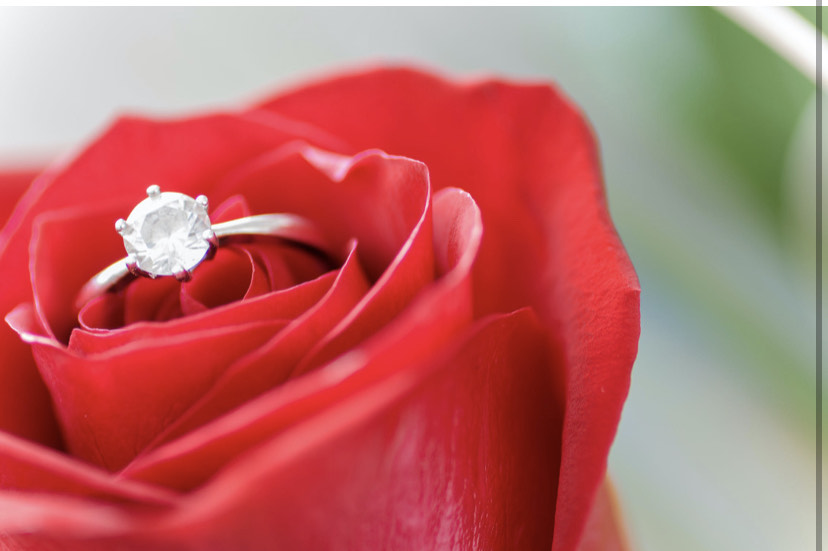“Disgruntled females”: Feminism in the “Bachelor” franchise
September 28, 2021
On March 25, 2002, something revolutionary happened: The first season of “The Bachelor” aired on TV screens all over the nation. That may sound dramatic, but nearly 20 years later, the Bachelor franchise has made a name for itself in reality television and reality in general.
Most are familiar with the structure of the show: thirty women sit in a house sans technology, books and any other form of entertainment for 10 weeks, all while attempting to earn a man’s love, a huge diamond ring and – possibly – a genuine engagement. Throughout the weeks, there is travel, romance and loads of drama.
It’s easy to pick apart the problems with this concept. The show pits women against one another, and they essentially compete for the chance to get engaged. In this game, a man is seen as the “ultimate prize.”
The quick introduction of the female equivalent, “The Bachelorette” put some people’s feminist worry at ease. After all, now both women and men could make fools of themselves as they tried to “find love” on reality television.
However, there is still something deeply problematic about the Bachelor franchise. All of the franchise’s shows enforce the stereotype that women must find fulfillment in marriage; specifically, in marriage to a man.
Some believe the franchise has made great strides regarding feminism and heteronormativity. For instance, the past three seasons of “The Bachelorette” greatly emphasized sex positivity for women.
Season 15 bachelorette Hannah Brown proudly said that Jesus still loves her despite having premarital sex. Season 17 bachelorette Katie Thurston identified herself as sex-positive throughout her entire run on the show.
In season six of “Bachelor in Paradise,” contestant Demi Burnett came out as the first openly bisexual woman in the entire franchise. Burnett ended the season engaged to her girlfriend at the time Kristian Haggerty.
These moments surely indicate that the Bachelor franchise is taking steps to convey more empowering messages towards women.
However, season seven of “Bachelor in Paradise,” the season currently underway, has featured some concerning setbacks.
“Bachelor in Paradise” is different from “The Bachelor “and “The Bachelorette” because it encourages multiple couples to form relationships rather than encouraging a group of men or women to form a relationship with a single bachelor/bachelorette. Some viewers might say the show is slightly more similar to real dating; if dating in real life involved taking a three-week vacation to do nothing but find love on a beach.
Burnett is once again on this season of “Bachelor in Paradise” after her split from fiancée Haggerty. Upon her entrance, David Spade, one of the show’s many celebrity-guest hosts, asked Burnett if she was “headed for the p or the v,” referring to whether Burnett would pursue men or women.
To keep up a healthy conversation on sexuality, this question should have been phrased very differently. Using language that minimizes people to just their genitals is problematic.
Burnett herself said some questionable phrases regarding the other women on the show as well. She referred to them as “poor women” as she was “going to steal all of their men.”
Perhaps most concerning in this season of “Bachelor in Paradise” are the comments made by contestant Brendan Morais.
In the early episodes of this season, it was rumored that Morais joined the show while already in a relationship. Naturally, this is dramatic because it makes Morais look like he is not on the show “for the right reasons” and is using other contestants to extend his time on television.
When Pieper James, the woman Morais allegedly had a relationship with, came on the show, Morais’ scheme became evident to everyone on the beach. This in itself, while not great in terms of what a contestant signs up for, is not inherently sexist or wrong.
The problems began when Morais, instead of owning up to his mistakes, decided to take out all of his frustration at being caught on the people around him; most noticeably on the women around him. Contestants Joe Amabile, Maurissa Gunn, Natasha Parker and Demi Burnett approached Morais to confront him about his intentions on the show.
In response to the group’s accusations, Morais referred to them as “Joe and his group of disgruntled females.”
This statement is wrong for many reasons. Firstly, Joe is the only named person; he is also the only male in the group. Secondly, by calling the women “his disgruntled females,” Morais implies that the women are in Joe’s possession.
Finally, the statement degrades the women to only their sex.
It is interesting to note that after making these sexist comments, Morais was essentially bullied off of the show. Morais was also made to look like a “villain” through the show’s editing.
Perhaps these sexist remarks reflect more so on the individual than the process of the Bachelor franchise overall. It’s possible the show is trying to improve how women are viewed, despite its un-feminist premise, which may be why Morais was portrayed as a villain.
Or perhaps emphasizing Morais as a villain was simply the most dramatic and entertaining angle the show could find. Only the viewer can decide.
Overall, the Bachelor franchise is certainly not an example of feminist media, but that doesn’t necessarily mean it’s not entertaining. There’s nothing wrong with having a good laugh or getting too emotionally invested in these relationships. Even so, viewers should remember to stay “disgruntled” and recognize the problematic themes and behaviors as they are expressed through the franchise’s shows.


